#SMALL INTESTINE TRANSPLANTATION
Text
Best liver transplant surgeon in Mumbai
Dr. Aditya Nanavati practices as a Consultant Surgeon in Multi-Organ Transplant and Hepatobiliary Surgery & Is also known as one of the Best Liver Transplant Surgeon in Mumbai.
Dr Aditya offers surgical services for the following conditions: re-operative abdominal surgery; bowel lengthening; simultaneous kidney-pancreas transplantation; small intestinal transplant; multivisceral transplantation; complex hepatic-pancreato-biliary surgeries; and short bowel syndrome. With a total experience of 8 years, he is a well-known liver specialist in Mumbai with a particular interest in Enhanced Recovery After Surgery (ERAS) programs.
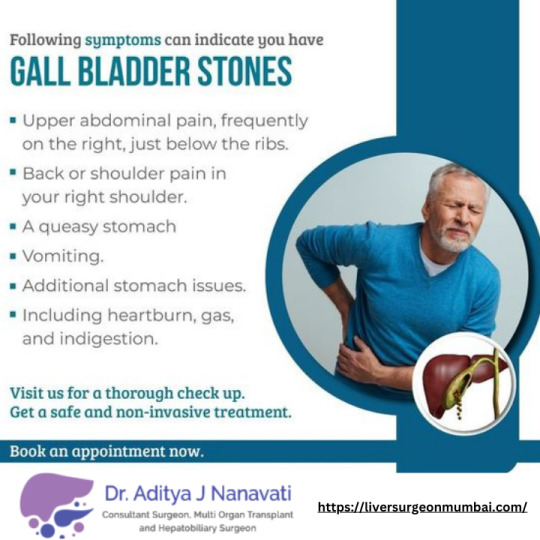
#Liver Transplantation#liver surgery#PANCREAS TRANSPLANTATION#PANCREATIC SURGERY#GALLBLADDER SURGERY#SMALL INTESTINE TRANSPLANTATION
0 notes
Photo
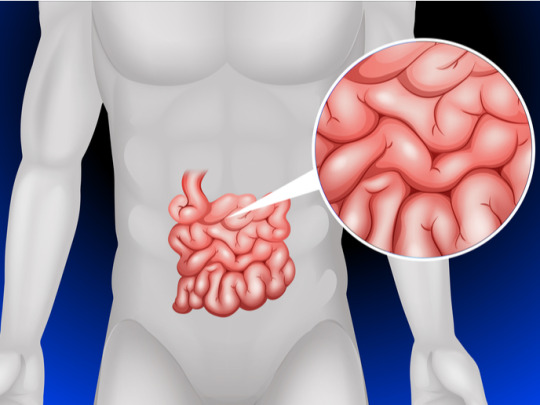
MedsurgeIndia is providing the affordable Small Intestine Transplant in India. They are also providing the top hospitals with the best doctors in India.
0 notes
Text
Cory Doctorow: The FDA literally granted pharma company Ferring a monopoly on shit. More precisely, the FDA rescinded its “discretionary enforcement” guidance relating to fecal microbiota transplants (FMTs), where doctors implant a small quantity of processed poop from one person to another, which turns out to be a powerful, safe treatment for serious and potentially fatal intestinal infection. The FDA ruling makes it illegal for doctors to source their poop from Openbiome, a nonprofit that coordinates between doctors, patients, and donors to provide safe FMTs. Ferring conducted clinical trials on FMTs and received approval for an FMT product called Rebyota, which charges $20,000 per treatment, compared to Openbiome’s $1-2k per treatment. So sick Americans will have to pay 10x higher for shit.
26 notes
·
View notes
Text

Got a three-fer here for @mungrovebingos!
Summary: Billy's recovery has been a long process, and his spirits are low, even five years after his near death at Starcourt Mall. Eddie has just the thing to boost Billy's morale- and even Mother Nature decides to lend a hand.
Rating: Mature
Tags/Warnings: PTSD, Body Image Issues, Post injury recovery, scars, hospital stays, medical content, serious injuries, hurt/comfort.
Read here, or on AO3!
Once, Billy had thought that living was hard. That dying would have been easier.
The truth was, neither was easier.
Living was hard, because it meant dealing with Neil, protecting and caring for a step-sister he’d never asked for, while trying to graduate, get a job, and get the fuck out of the hellhole that was supposed to be home- and try not to be eaten alive by the guilt of leaving Max to Neil’s cruelty.
Nearly dying had been excruciating. The pain didn’t end, and death didn’t come for him; it had simply sat there on the sidelines and laughed at him, taunting him with release as he succumbed to a coma instead.
Billy had woken up to a world of pain like he’d never experienced.
His entire digestive system was rocked to its core from the chemicals he’d been forced to consume- as well as whatever that thing had pumped into him. His liver was on its last legs, and doctors had placed him on a transplant list in the likely chance it failed.
It was still nothing compared to the damage to his torso.
He had sustained a gaping wound in his chest, his sternum broken in two. Ribs on each side were broken, his spleen had ruptured- and removed while he was in his coma- and he’d lost a kidney.
He’d been placed in a medical coma for his own sanity- with only ten percent of his liver functioning, they couldn’t give him any pain medication stronger than Tylenol. To spare him the agony, they’d put him under, hooking him up to a ventilator, with a feeding tube that went directly into his small intestine, since his stomach was so damaged. He was also put on a high dose of daily antacids to help his stomach heal.
Meanwhile, his chest had been operated on multiple times, his sternum put back together with a titanium fixation plate, his ribs left to heal naturally, and the organs damaged beyond repair were removed- his spleen, the kidney, a large part of his liver, gall bladder, and what remained of his thymus.
The doctors had told Neil not to get his hopes up, that his chances of survival were less than twenty percent.
Neil didn’t come back after that last consult- in fact, he’d left Hawkins altogether.
To everyone’s surprise, Billy proved them wrong.
He lived. He healed.
He started to come back, his body pulling itself together. The ulcers in his stomach and the inflammation in his intestines healed. His bones slowly knit themselves together. His surviving kidney was tolerating the doubled load better than expected, and his liver was regenerating faster than anyone had dared to dream- going from ten percent functionality to nearly fifty.
Billy Hargrove would survive- like he always did. And like everything else in his life that had to be survived, his recovery would be long, painful, and slow.
All the while, in his coma, Billy dreamed of the Pacific Ocean. He dreamed of memories of cold water, seven foot waves, sandals covered in sand, and an orca calf with freckles on the white parts of its jaw and lower belly, leaping out of the water in a moment of pure, joyous freedom.
It was the snoring he’d woken up to. He’d opened his eyes, looked to his right, and found Eddie there in the chair, arms folded on Billy’s bed, head resting on them as he snored. His messy hair was a nightmare, and Billy could tell from a glance that Eddie hadn’t changed in days- he probably only left to change or shower when hospital staff told him to.
Billy had let out a soft snort through his nose- muffled by the cannula feeding oxygen into his nose- then put his hand on Eddie’s head, stroking the disaster that was his hair. Eddie had stirred, lifting his head, and his big brown eyes became even bigger, filling with tears, glittering in the fluorescent lights.
“Welcome back,” he’d said, tears spilling over cheeks that had the imprint of the sleeves of his jacket.
“What’d I miss?” Billy had asked, voice dry, hoarse and rough from months of being on a ventilator.
He was worried the feelings that had started to cultivate between them had faded, that Eddie might change his mind after seeing the damage done to him, but Eddie had let out a sobbing laugh, and without a word, simply leaned over and kissed him- answering any silent doubts Billy woke up with.
That was nearly five years ago, and after grueling physical therapy, after trauma therapy that was even harder, Billy was as close to being “back to normal” as he ever could be.
His chest was tight, stiff, the large scar was unpleasant to look at- shiny, gnarled tissue that was waxy, hard, and disconnected from his chest wall. It restricted his movements, made it hard to get comfortable when sleeping, and it constantly was shot through with jolts of electricity, or bouts of itching deep under the scar tissue.
The doctors assured him the pain and the itching was normal, that it was good- it meant he was healing. To Billy, it was just a reminder of the traumatic injury that caused it, and he hated it. He’d rather it stay numb than have it heal.
He was tired of the pain shooting through his sternum and ribs, waking him from sleep, turning his dreams into nightmarish flashbacks of melted people piercing his chest and attempting to kill him as fanged tentacles sank their teeth into his sides, trying to rend him from limb to limb.
Billy was tired of waking up, drenched in a cold, acrid sweat that reeked of battery acid. The doctors told him it was from the high protein diet he’d been on to speed up his healing, but Billy still smelled the chemicals that the monster had made him choke down, still felt the burn of chlorine and boric acid in his throat.
He still couldn’t taste things properly, but his diet was so simple now, thanks to the damage done to his stomach, that it didn’t really matter much anyway.
He could only take Tylenol- anything else was too hard on his stomach and liver, and both were still recovering from what the monster had made him swallow. Billy didn’t bother with Tylenol- it didn’t touch his pain.
Weed helped, though. He and Eddie didn’t know if it would hurt his liver or not- and they sure as fuck weren’t going to ask doctors about it- but it helped. The high helped him sleep, calmed his anxiety responses to loud noises and bright lights. It didn’t entirely help his pain, but it soothed the inflammation of his scar tissue after his daily massaging.
Eddie had been consulting with some folks in Portland, and they’d sent him lotions and balms infused with cannabis oil. Beeswax, goat’s milk, castor oil with rosemary, lavender, or peppermint, cocoa butter- all different sorts of things for Billy to try.
They all helped a great deal with massaging his scars, and Eddie had been more than happy to rub his back down, tracing shapes in the patterns, kissing them when he was done, and telling Billy how much of a bad ass he looked.
Billy always scoffed, but the truth was, it helped him feel better about the scars. He used to go out shirtless, or with an open shirt or jacket, showing off the body he’d cultivated- muscular and tan, the 1980’s ideal.
Now, it was 1990, almost at the five year anniversary of his brush with death, and Billy wasn’t too fond of his body anymore. His range of movement, strength and flexibility were still restricted, and he had to keep his skin protected and covered to prevent the scars from becoming worse- they were already painful, since the larger ones were contracture scars.
Billy was thinner, struggling to keep up the muscle tone he’d once had, working so hard with physical therapy, massage and manipulation of his scar tissue to soften it up, and he was paler of skin and darker of hair while avoiding the sun to keep it from thickening his scars.
He’d been miserable, despite his progress, and it tore Eddie up to see him that way, so he’d suggested the road trip to California, to the coast Billy knew so well, had spoken so fondly of, and so often.
So they’d made the trip. It had been slow going- Billy didn’t have the stamina he used to for driving, so Eddie had taken the wheel, and dealt with Billy’s passenger-seat driving. They’d stopped at rest stops to save money, or shitty motels when the rest stops weren’t safe enough, and Eddie had patiently, lovingly worked out the knots in Billy’s muscles, massaged CBD balms into his scars, and they’d eaten pizza on lumpy or sagging mattresses, watching late night TV before sleeping.
There was a night where they stopped at a gas station in a questionable place where they attracted instant attention because they stood too close together at the line for the register. In the lot next to the gas station, the locals were having a riotous party that involved their jacked-up trucks that kept backfiring loudly.
Every bang, every hoot and holler that came from the trucks had Billy flinching, until he was actively shaking, a sweat breaking out on his face. Eddie hurried to pay when it was their turn, and the cashier gave Billy an odd look.
“You okay, hon?”
Billy clutched at the collar of his tank top, trying to cool himself down, and the top of his scar became visible. Eddie saw her expression change to horror.
“Shh,” Eddie hissed to her in a conspiratorial whisper as he handed her the money for the gas. “He was in the Army; combat damage, and he’s got that Post Traumatic stress thing.”
The woman nodded, her eyes going doleful.
“So young…. Thank you for your service, honey,” she said in a sorrowful tone, giving him a salute as Eddie gently herded him back to the car.
It had taken Billy nearly an hour to come down from the panic attack, and once he’d calmed, he fell asleep. Eddie elected to keep driving- Nebraska was no place for them to stop, and they were mere miles from the Colorado border.
It got easier, the further west they went. They weren’t going to San Diego- Billy knew those beaches, but the risk that Neil went back there was too high. The city was big, but so was Neil’s network of contacts that had found out Billy’s sexuality and spurred Neil’s decision to move to Hawkins.
The last thing Billy needed for his recovery was having Neil find him.
So instead, they were headed to Monterey Bay, south of San Francisco. Eddie had heard it was a good place for beginner surfers, which meant it would be easier for Billy to get back on the board, and indulge in some exercise that wouldn’t be too dangerous for him, while still being enjoyable.
He’d told Billy they were going to San Francisco to spend time in a place where there were fellow queer folks, and they could just disappear into the crowd for a bit, and be normal. The trip to Monterey Bay was a surprise.
And now, after a careful week of driving, they had reached Monterey Bay. It was three in the morning, and Billy was sleeping soundly in the front seat. Eddie did his best not to wake him as he stopped at a few motels, comparing prices, before finally settling on one that was cheap and right by the beach- it was the off season for another week or two, so prices and availability were at a premium.
Eddie booked their room for a week, then came back to the car. He opened Billy’s door and carefully, gently roused him from his sleep. Billy jerked awake with a snort, sitting up and looking around warily.
“Where are we?” he asked, voice thick with sleep. Eddie rubbed his shoulder and handed him the room key.
“The motel. Booked us in for a week. Let’s get you into a decent bed and get some actual sleep, yeah?”
Billy nodded, blinking sleep-fogged eyes as he got out of the car and did a full body stretch, only stopping when his scars tugged and protested. Eddie didn’t react to Billy’s sudden stiffening, the frustration in his face- the last thing Billy needed or wanted was pity. It meant his weakness was obvious, and Eddie didn’t want him to feel weak. Still, Eddie hauled their luggage out of the trunk of the car and carried it in, letting Billy unlock the door.
The room was nice and cool, and Billy sighed gratefully- he never did regain his heat tolerance, still preferring the cold to heat. Eddie didn’t mind- the colder it was, the easier it was to snuggle up to Billy while he slept, without overheating Billy in the process.
Billy went back outside to lock the car up as Eddie took inventory of the room. He was rather satisfied with it, all things considered- well worth the nightly cost of thirty bucks. It was a bit more than he wanted to spend, but the motel was clean, close to the beach, and since it wasn’t a hotel, it wasn’t as likely to fill up as quickly, giving them a bit of disconnect from the public.
The room had a sofa with a pull-out bed- which Eddie dumped their luggage on- and a single king-sized bed. It had a small table with two chairs, a dresser with two sets of drawers, a TV with a VCR, cable, and a mini fridge that actually had a separate freezer. The bathroom had a decent enough sized tub with a sliding door of frosted glass for the shower.
Eddie unpacked their clothes while Billy took a leak, and shed his clothes, changing into a fresh pair of boxers. He shoved his dirty clothes in a plastic shopping bag as Billy came out to wash his hands.
“Don’t forget to brush your teeth,” Eddie told him, pressing a kiss to his cheek before slipping past for his turn in the bathroom. Billy rolled his eyes good-naturedly, but still helped himself to the trial sized tube of toothpaste and the travel toothbrush left on the counter, too tired to dig through their bags for his own.
While Eddie prepped for bed, Billy closed the curtains tight, locked the door, slid the chain home, turned the thermostat down as far as it would go, and the AC on as high as possible. When Eddie emerged, hair and teeth brushed, the room had dropped by five degrees, and Billy was sprawled on the bed. He’d peeled the blankets back, folding them so Eddie could have them all.
“Gonna get cold as hell in here,” Eddie commented, sliding under the covers and nestling up against Billy’s side.
Billy was resting on his back, arm outstretched so Eddie could curl against his side, using his chest as a pillow. His scars had finally healed to the point where Eddie could rest his cheek on Billy’s chest without causing him discomfort, and it was a major milestone in Billy’s recovery- the reclamation of his intimacy with Eddie.
“So what’s the plan tomorrow… or later, rather?” Billy said, voice already thick with sleep again, lulled by the siren song of freezing AC, Eddie’s warmth, and a comfortable bed.
On the night stand, the alarm clock glared at them with red digits, telling them it was four am. Eddie closed his eyes, ignoring it- time didn’t matter when they were on vacation- and nuzzled into Billy’s chest. His heartbeat was strong and steady under his cheek, reassuring and soothing.
“No plan,” Eddie murmured. “Nothing pressing, anyway. But there is a surprise.”
“A surprise?” Billy asked, and Eddie heard his heart speed up a bit. Eddie stroked his scars gently.
“Nothing bad, I promise,” he soothed. “Just… listen.”
As if trying to help him out, the AC stopped humming, having reached the set temperature. Bill was quiet, and Eddie waited as the sound of waves reached his ears.
“We’re right by the beach,” Billy said wonderingly. “How’d you afford a motel in San Francisco on the beach, babe?”
“I didn’t. We’re at Monterey Bay,” Eddie told him, smiling.
“Eddie….”
“You like the cold even more now, so I figured, it’s not full tourist season yet, so the beach won’t be as crowded, the water will be perfect for you, and the waves are decent, but not overwhelming, so you can surf a bit without overdoing it.”
Billy made a soft sound in his throat that sounded suspiciously like a sob being choked back. He rolled onto his side and wrapped his arms and legs around Eddie, clinging to him like a piece of flotsam in a flood.
“Thank you, Eddie,” he whispered into Eddie’s hair.
Eddie smiled in the darkness, hearing Billy’s heartbeat, the waves outside, and feeling Billy’s warmth seeping into the bed, into his bones, reigniting the fatigue that he’d been fighting all night.
“For now, let’s sleep,” he told Billy, stroking his back. “And when we’re rested, let’s go to the beach.”
Billy nodded, and with one final shudder, his muscles relaxed, and he stopped fighting the fatigue born of anxiety, a long car ride, and worry about the unknown, succumbing to sleep- and taking Eddie with him.
——
Their fatigue was deeper than either of them realized- neither of them woke until nearly five in the evening, sleeping more than twelve hours.
It was Billy who woke up first, roused by the sound of the waves and the gnawing of his stomach. He untangled himself from Eddie’s arms and legs, then slid out of bed and moved to the bag of snacks on the sofa. A half empty bag of beef jerky called his name, and he sat on the foot of the bed, gnawing on it, staring into space contentedly.
Eddie’s breathing was starting to quicken, and he stirred under the blankets. His stomach let out a roar of protest, and with a grumble, he sat up, rubbing at his eyes. Billy tried not to laugh at the mess his hair had become- as it always was when he woke up.
“Hungry?” he asked, holding out the bag. “There’s a quarter left, give or take.”
Eddie shook his head, yawning and stretching, his back popping.
“Thinking of ordering take out- there’s a binder that has menus, numbers and shit of local places that deliver.”
Billy deflated a little as Eddie got out of bed and swiped the binder from the dresser.
“We’ve had enough junk food, babe,” he pointed out, his stomach still grumbling, unsatisfied with the jerky.
Eddie flicked on the light above the headboard of the bed, and pointed to a page in the binder.
“Look. Local seafood- shrimp, fish, crab, pasta, crab cakes…”
Billy’s stomach let out a roar and Eddie laughed as his own stomach echoed the sentiment.
“Yeah, fish and chips sounds amazing.”
“Actual seafood, locally caught,” Billy breathed. “Fuck, that sounds so good.”
Eddie grinned.
“You order for us- I’m gonna take a shower because I caught a whiff of my own pits and I reek. You can join me after you order us some food, and by the time we’re done, it’ll be here, and we can go eat it on the beach.”
Billy smiled.
“That sounds amazing. Fish and chips, then?”
“Yeah, with extra lemon, ketchup instead of tartar sauce, and a sweet tea with lemon.”
Eddie kissed Billy’s forehead, then disappeared into the bathroom while Billy ordered their dinner- Eddie’s fish and chips, and a basket of fried mahi mahi, grilled salmon, fried shrimp, and a large order of french fries, with two large cokes. He suspected Eddie would want to sample from his plate, as he was wont to do, and he decided if Eddie was going to sample some of his seafood, there would be good seafood, and plenty of it.
Billy waited for Eddie to finish showering before taking one himself. He still had issues being seen in full light, still needed to be alone when he had to touch his scars.
Eddie was patient in that regard. He never asked Billy to take showers together, never demanded bright lights when they were intimate. Billy was getting better, though- he could handle a lamp or two being on, and didn't flinch anymore when Eddie's hands brushed over his scars.
It was different in a shower, when he was naked and there was no expectation of intimacy to distract Eddie from his scars. He felt too exposed, too vulnerable.
Eddie was okay with that. He'd wait as long as it took, as long as Billy needed, to be comfortable in his own skin again.
The food arrived after an hour- Eddie was ravenous, but didn't begrudge the delivery guy for the wait, tipping him well. The bag of food had steam billowing from the seams, and it was hot in his hands. The drinks were still cold and full of ice, the plastic cups beaded in condensation.
Billy came out, wearing swim trunks and a tank top, drying his hair with a towel. He sniffed the air and his stomach let out a roar. Eddie grinned and held up the bag.
“Dinner's here!”
Billy headed for the table, but Eddie shook his head, shoving his feet into his Reeboks.
“Come on,” he said, grabbing the throw blanket from the end of the bed. “Get the drinks, let's go eat this on the beach.”
Billy's face lit up, and he slipped into his flip-flops, grabbing the drinks and the room key. Together, the locked the room up, and headed for the beach.
The sun was setting, and there weren't many people around. The surf was loud, soothing, and the sky was a rich gradient of gold, orange, red, wine, and dark indigo blue, with a splattering of stars starting to shine through. On the horizon, Billy could see sparks of light that he knew were Mars and Venus.
Eddie spread out the blanket on a soft, level patch of sand just far enough from the waterline that they wouldn't get wet, but close enough that it was only a few steps to get his feet in the water.
The two of them sat down, pulling out their dinner and setting it out. Though they'd ordered their own meal, they shared, eating in companionable silence only broken by commentary on the food, or soft laughter or sounds of appreciation.
Eddie felt flustered as occasionally, Billy held out morsels for him to try, refusing to let Eddie take them with his hands- he put them directly in Eddie's mouth, his eyes glittering in the light of the fading sunset, love and gratitude written all over his face.
“I needed this. So much.”
Eddie wiped grease off on his jeans and reached over to take Billy's hand, squeezing it.
“I know. Was it a good surprise?” he asked.
Billy nodded, his eyes shining, and he looked over the water. The sunset was almost gone, a thin sliver of gold and red shining over the edge of the horizon, casting an orange light over the water in stark contrast with the wine-dark ocean and the sparkling stars overhead.
”I don't think it could get any better,“ he said softly.
”Maybe if you could surf?“ Eddie suggested, and Billy shook his head, squeezing Eddie's hand again.
”Tomorrow. For now? This is all I need.“
He leaned in to kiss Eddie, and a massive splash of water caught their attention.
Out of the water, the remaining sunlight shining on its slick rubbery skin, leapt a massive killer whale. It let out the breath from its lungs in a great burst of air before crashing back into the water again.
Billy was on his feet, running for the tide, Eddie following. Billy went as far as waist deep, staring at the water with eyes wide.
“Billy?”
Billy didn't answer. The orca breached again, this time, his belly facing them, his massive, elegant body twisting as he leapt for the sheer joy of it, as if trying to fly, and not caring if he succeeded- because the attempt was all that mattered.
Tears rolled down his face as he saw the freckles on the white parts of the orca's chin and belly- the very same he'd seen on a calf nearly a decade ago.
“You made it,” he whispered. “You grew up.”
Eddie was in the water beside him, his arm around his waist. The water was cold around their legs, the sand fine and coarse under their feet, between their toes, swirling in the tide.
“You… you know this whale?” Eddie joked gently. “He owe you money for a surfing contest, because it looks like he'd win.”
Billy laughed, pulling Eddie against him, not bothering to wipe the tears from his face.
“I saw him when I was ten. I was surfing, and this calf just leaps out of the water, and I saw a freckle on his belly, on his jaw. He was the spunkiest, happiest thing I'd ever seen in my life.”
Billy smiled. A real, genuine smile.
“I dreamt about him when I was in a coma. About coming home, and seeing him again. And here he is, all grown up. He's HUGE, he's powerful and he's still free and happy.“
Another splash, a short distance away, and another orca leapt out of the water. This one was a bit smaller, with a shorter dorsal fin- and there was a calf at its side. Billy's smile grew.
”Is that your kid, big guy?“ Billy asked the orca, even if he couldn't hear the question. ”Did you find a family of your own?“
One by one, more orcas began to join the acrobatics, and soon, there was close to ten of them, all leaping, breaching, splashing with their tails, rolling in the water, playing with the calves, and high pitched calls sounded over and through the water as they talked to one another.
Billy turned and buried his face in Eddie's chest, his shoulders shaking, tears soaking Eddie's shirt. Eddie held him close, alarmed.
”Billy, you okay?“ he asked, worried.
”I'm better than okay,“ Billy managed.
Eddie held him, waiting for him to recover, to regain his composure. When Billy pulled away again, he was smiling.
”They're welcoming me home, Eddie.“
”Yeah, you really do belong here,“ Eddie agreed, thinking they needed to make this trip permanent, that they needed to move here for Billy's well being. Already, his mind was making plans, lists, mapping out the move and the logistics behind it.
Billy shook his head.
”I wouldn't have come here, wouldn't have seen them, wouldn't have had this chance at recovering, if it wasn't for you, Eddie,“ he said.
He rested his head on Eddie's shoulders, letting the waves crash against his waist, feeling the sand under his feet, watching the orcas dance.
”Me?“ Eddie asked, and Billy nodded.
”It's you, Eddie. Wherever you are, is home.“
Eddie swallowed a shuddering, happy breath, resting his cheek against Billy's head, and the two of them watched the orcas dance under the stars.
16 notes
·
View notes
Text
Shidou MV Details
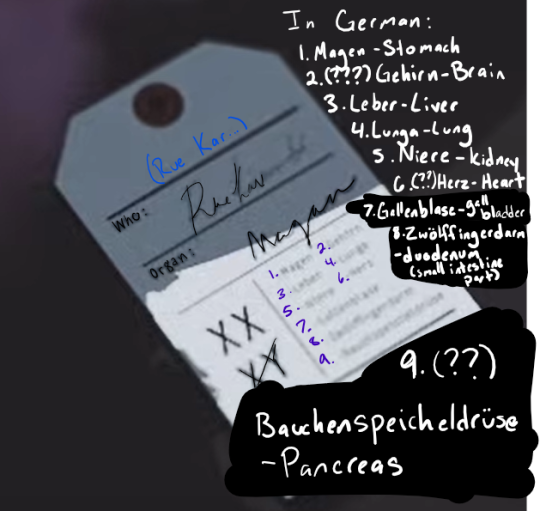
Alright! So I (admin Saturn) did some frame by frame examination on Shidou’s MV. I don’t necessarily have any theory that comes from this but I do have some interesting information/clues!
Now the image above that I’ve written over is taken from 3:35 in the MV. This is that tag that comes from the flower person. (Shidou’s suspected romantic partner that he’s trying to save via organ harvesting)
Interestingly, everything on this tag is the same as on every other tag that ca be seen in the 2:24 section of the video. This could be from an ease of animation stand point, a way to represent how dialed in on this person Shidou is, or even have some broader theoretical implication on his crime that I couldn’t tell you.
Taking a look back at the actual contents on the tag though, the first thing to point out is the ‘Who:’ section. It’s very clearly in cursive and to the best as I could trace on edited image, I think it might say Rue Kar... something. This could be the name of the dead person, a surgeon that was operating on then, an organ donor, really any number of potential people.
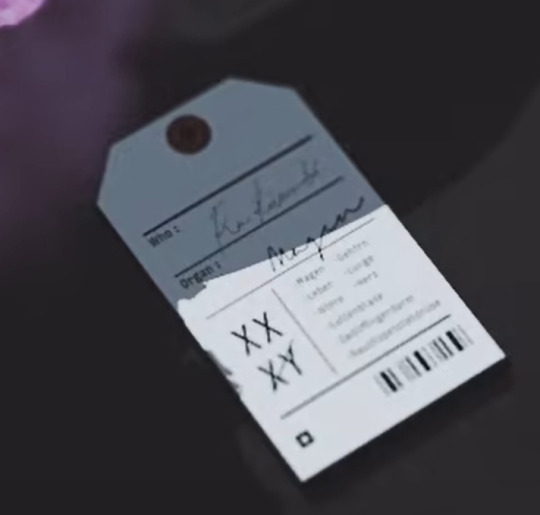
(And I’m putting the unedited version in just so y’all can get a clear look) The next thing on here is the ‘Organ:’ section which (to my best guess) says magen. Now! That meant literally nothing to me at first, however with some googling, I learned magen is german for stomach.
Why would this japanese MV have german names for organs? Couldn’t tell you! I’ll leave that for the theorists to figure out! However, I am almost certain that this is in fact meant to be read in German because of the additional very small writing underneath. Taking just the shapes that I could make out and comparing them to a german anatomical name list, heres what they look like to me in the order that’s in my first picture.
1. Magen - Stomach
2. (???) Gehirn - Brain
3. Leber - Liver
4. Lunga - Lung
5. Niere - Kidney
6. (??) Herz - Heart
7. Gallenblase - Gallbladder
8. Zwolffingerdarn - Duodenum (small intestine part)
9. (?) Bauchenspiecheldruse - Pancreas
My theories as to why theres this list: (and nothing concrete, I’ll leave this to the theorists and future MV’s to explain) Could be a list of organs this body needed replaced or could be just a list of organs as a sort of checklist for medical peeps?
Adding on to this, 9 items in a category is also seen as the number of unique flowers (I believe? that I counted at least, correct me if I’m wrong here) that are flashed against that black background which could suggest the flowers represent organs instead of patients that some theorize? Now how exactly a person would transplant a brain is above me.. pretty sure it’s impossible so I don’t know what that’s about, however these could instead be organs that are beginning to fail rather than organs Shidou is transplanting? The logic doesn’t quite flow here though, just figured pointing out this correlation (not causation) could help others theorize.
But anyway, last thing on the front of this is a big ol XX XY with the XY having a slash through it. Now... 2 explanations for this cause it’s kinda counter to my logic. Either this is indicating biological female by crossing out the XY or indicating biological male because its the one that marked.... Either way kinda an odd system but I won’t fault them!
And then some additional things I noticed, if you look at the papers that turn into the tags, they all have the same grey lines on them indicating these papers all hold the same information. This could have similar explanations as why all the tags are the same.
And then last thing! All the tags have the same black backside with a number 7 on it and some unintelligible writing.

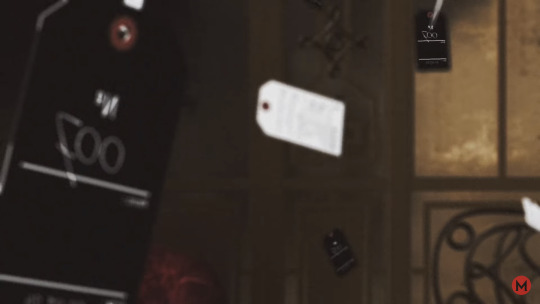
Heres two good shots of the back, something to note is that the part has the N, like the number indicator, looks to be the same type of font as the one that indicates prison cell number. Maybe they just reused the font but it does seem sort of odd to me? Especially because Shidou is prisoner number 5. Just something odd.
But anyway!! Sorry that got so long, that’s what I have discovered here, please let me know what y’all think!! I’m not quite one for the strong theories but I like to think I can pick out some interesting details :)
#milgram#milgram shidou#shidou kirisaki#milgram theory#Admin Saturn#like legit please let me know what yall think about this!! I'm very interested by the german in this japanese series#Also I didn't mention this above but the only idea I have to explain why there could be german is maybe shidou fled to germany#in order to do these illegal opertaions#but I'm very quick to not believe that because at looking at the very blurred writing on the hospital posters they look much more japanese#I'll also add that the I suggest looking at the screenshots on your own device as a bit of the clarity was lost between screenshots#Also the outlines that area able to be seen can be helped by comparing which parts of the lines are visible in dif shots
86 notes
·
View notes
Text
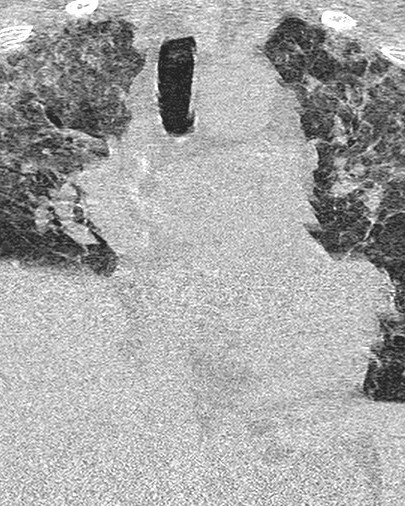
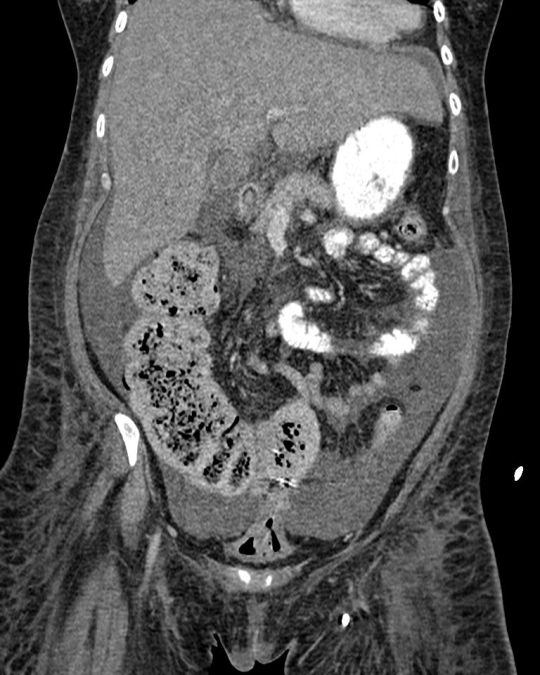
Stem cell transplantation (SCT) can cause a host of complications. Graft versus host disease (GVHD) is common and can be severe, affecting many organ systems. In acute GVHD, end-organ damage is the result of recipient's APCs interacting with donor T-cells, leading to donor T-cell activation with a resultant cell-mediated and inflammatory cascade. The pathophysiology of chronic GVHD is not well understood. Skin, small intestine, and liver are most commonly affected; lung involvement is less common.
Acute GVHD typically occurs within 100 days post SCT and can cause bowel wall thickening and/or dilatation, biliary abnormalities, ascites, pulmonary edema, diffuse alveolar hemorrhage, and a myriad of other findings. Chronic GVHD typically occurs within 2 years of SCT and may affect skin, mouth, GI tract, liver, lungs, muscles, joints, or genitals. Imaging is based on presenting symptoms.
Read more about the complications of SCT (including GVHD) from the American Cancer Society. https://www.cancer.org/.../transplant-side-effects.html
Today’s case is a patient 2 months post SCT who presented with shortness of breath, nausea, and vomiting. Lungs demonstrate upper lung predominant groundglass opacities and interstitial thickening, worrisome for acute GVHD. The cecum is thickened and enhancing, with pneumatosis, likely indicating typhlitis (neutropenic colitis). There is also moderate volume ascites.
Case courtesy of Hoe Han Guan, Radiopaedia.org, rID: 166522
#TeachingRounds#FOAMEd#FOAMRAd#Radiology#transplant#transplantimaging#transplantmedicine#infectiousdisease#pulmonology#gastroenterology#hematology#GVHD#stemcelltransplant
2 notes
·
View notes
Text
Finding Expert Care: Navigating Gastroenterologist in Dubai
Introduction:
Dubai, known for its world-class healthcare facilities and renowned medical professionals, offers exceptional gastroenterology services to residents and visitors alike. Gastroenterologists play a crucial role in diagnosing and treating a wide range of digestive disorders, from common conditions like acid reflux and irritable bowel syndrome (IBS) to more complex issues such as inflammatory bowel disease (IBD) and liver disease. In this blog post, we'll explore the role of gastroenterologist in Dubai, the services they provide, and how to find the right specialist for your digestive health needs.
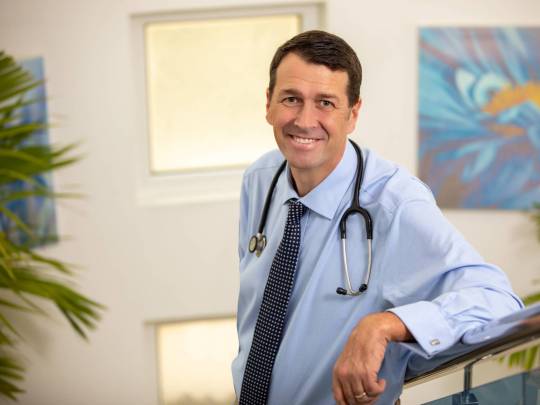
Gastroenterologist in Dubai
Understanding Gastroenterology:
Gastroenterology is the branch of medicine focused on the diagnosis and treatment of disorders affecting the digestive system, which includes the esophagus, stomach, intestines, liver, gallbladder, and pancreas. Gastroenterologists are physicians with specialized training in gastroenterology who are equipped to manage a wide range of gastrointestinal (GI) conditions through various diagnostic procedures, treatments, and interventions.
Services Offered by Gastroenterologists:
Gastroenterologists in Dubai offer comprehensive services to address various digestive health concerns and acidity home treatment. Some of the key services provided include:
Diagnostic Procedures: Gastroenterologists use a variety of diagnostic procedures to evaluate and diagnose digestive disorders, including:
Endoscopy: A procedure that involves inserting a flexible tube with a camera (endoscope) into the digestive tract to visualize the esophagus, stomach, and upper portion of the small intestine.
Colonoscopy: A procedure used to examine the colon and rectum for abnormalities such as polyps, inflammation, or cancerous growths.
Imaging studies: Gastroenterologists may order imaging tests such as ultrasound, computed tomography (CT), or magnetic resonance imaging (MRI) to further evaluate digestive issues.
Laboratory tests: Blood tests and stool tests may be ordered to assess liver function, detect inflammation or infection, and screen for certain gastrointestinal conditions.
Treatment and Management: Once a diagnosis is made, gastroenterologists develop individualized treatment plans tailored to each patient's specific needs. Treatment options may include medication management, lifestyle modifications, dietary changes, and surgical interventions when necessary.
Endoscopic Procedures: Gastroenterologists are trained to perform a variety of endoscopic procedures to treat GI conditions, including:
Endoscopic retrograde cholangiopancreatography (ERCP): A procedure used to diagnose and treat conditions of the bile ducts and pancreas.
Endoscopic ultrasound (EUS): A procedure that combines endoscopy and ultrasound imaging to visualize the digestive tract and surrounding organs.
Endoscopic mucosal resection (EMR) and endoscopic submucosal dissection (ESD): Techniques used to remove abnormal tissue or early-stage cancers from the digestive tract.
Liver Disease Management: Gastroenterologists specialize in the diagnosis and management of liver diseases, including hepatitis, fatty liver disease, cirrhosis, and liver cancer. They work closely with hepatologists, liver transplant surgeons, and other specialists to provide comprehensive care for patients with liver conditions.
Finding a Gastroenterologist in Dubai:
Finding the right gastroenterologist in Dubai involves several steps to ensure you receive expert care for your digestive health needs. Here are some tips for finding a qualified gastroenterologist in Dubai:
Research and Referrals: Start by researching gastroenterologists in Dubai through online directories, hospital websites, or professional organizations. Ask for recommendations from your primary care physician, friends, family members, or colleagues who have had positive experiences with gastroenterologists in the area.
Check Credentials and Experience: Verify the credentials and experience of potential gastroenterologists by checking their medical degrees, board certifications, and training in gastroenterology. Look for specialists who have completed accredited fellowship programs in gastroenterology and have a track record of expertise in treating specific digestive disorders.
Read Reviews and Testimonials: Read online reviews and testimonials from previous patients to get insights into the quality of care provided by gastroenterologists. Pay attention to feedback regarding communication skills, bedside manner, wait times, and overall patient satisfaction.
Consider Hospital Affiliations: Consider the hospital affiliations of gastroenterologists, as this can provide valuable information about the facilities where they practice and the resources available for diagnostic and treatment procedures. Choose a gastroenterologist affiliated with reputable hospitals and medical centers in Dubai.
Accessibility and Availability: Consider the location, office hours, and appointment availability of gastroenterologists when making your decision. Choose a specialist whose office is conveniently located and offers flexible scheduling options to accommodate your needs.
Insurance Coverage: Check whether the gastroenterologist accepts your health insurance plan and inquire about any out-of-pocket expenses, co-pays, or deductibles associated with office visits and procedures.
Conclusion:
Gastroenterologists play a critical role in diagnosing and treating a wide range of digestive disorders, and Dubai offers access to world-class gastroenterology services provided by highly skilled specialists. By following these tips and conducting thorough research, you can find a qualified gastroenterologist in Dubai who can address your digestive health concerns and provide personalized care tailored to your needs. Don't hesitate to prioritize your digestive health and seek expert care when needed. Your well-being is worth investing in.
1 note
·
View note
Text
I've only personally experienced one Sheldon Cooper Joke and im already over it. Whoever greenlit the big bang theory should have their small intestine privilige revoced and their fingers transplanted on their feet and their toes transplanted to their hands.
#Hate the big bang theory#over it#it's probably not that big a deal but it really annoyed me and I haven't even seen the show
0 notes
Text
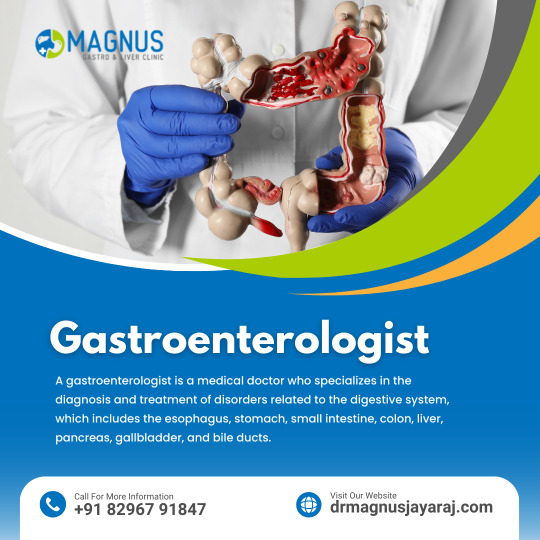
Gastroenterologist
A gastroenterologist is a medical doctor who specializes in the diagnosis and treatment of disorders related to the digestive system, which includes the esophagus, stomach, small intestine, colon, liver, pancreas, gallbladder, and bile ducts.
Contact +91 82967 91847 or visit https://drmagnusjayaraj.com
for top liver transplant services.
#drmagnusjayaraj #Gastroenterologist #LiverTransplant #LiverHealth#LiverHealth #LiverWellness #LiverDisease #LiverAwareness #LiverCare #LiverFunction #HealthyLiver #LiverSupport #LiverDetox #LiverLove
0 notes
Text
Surgical Gastroenterologists at PACE Hospitals: Expertise You Can Trust
PACE Hospitals is proud to house a team of highly skilled and experienced Surgical Gastroenterologists. These doctors specialize in diagnosing and treating a wide range of conditions affecting the digestive system, from the esophagus to the rectum.
Award-winning team of Best Gastro Surgeon in Hyderabad, Top Surgical Gastroenterologist and gastrointestinal surgeon, offering treatment for the most complex and challenging surgical cases that can be cancerous or noncancerous conditions of the esophagus, liver, pancreas, gallbladder, stomach, bile duct, spleen, small intestine, large intestine, colon and rectum etc.
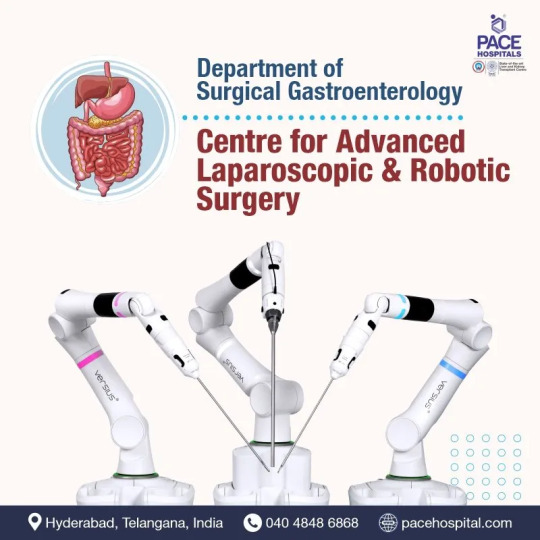
Department of Surgical Gastroenterology is equipped with World's 1st AI Robotic Surgery System, world-class laser equipment, advanced 3D-HD Laparoscopic System to achieve precision and high success rate in treatment.
Top Surgical Gastroenterologist in Hyderabad - Hitech City and Madinaguda
Best Internationally renowned gastroenterology surgeon, GI surgeon, gastrointestinal doctors in India for Surgical Gastroenterology, Surgery for Liver cancer, Stomach cancer, Intestine Cancer and Pancreas cancer, Hepato-pancreato-biliary (HPB Surgery), Hepatocellular carcinoma, Hernia treatment, Colorectal surgery, GERD surgery and Minimally invasive laparoscopic and Robotic surgery.
Here's what you can expect from our Surgical Gastroenterologists:
Advanced Training and Expertise: Our surgeons have undergone extensive training in surgical techniques, including laparoscopy and robotic surgery, allowing for minimally invasive procedures whenever possible.
Comprehensive Care: They work closely with other specialists, such as gastroenterologists and oncologists, to ensure you receive a coordinated treatment plan.
Focus on Patient Needs: Our surgeons understand that every patient is unique and prioritize clear communication to address your individual concerns.
Our Team Includes:
Dr. CH Madhusudhan :
MBBS, MS - General Surgery (Osmania Medical College, Hyderabad, Telangana), FRCS (UK), MCh - Surgical Gastroenterology / G.I. Surgery (AIIMS, New Delhi), Liver Transplantation (USA)
Director - HPB and Liver Transplant
Senior Consultant Surgical Gastroenterologist and Liver Transplant Surgeon
Dr. CH Madhusudhan has over 27 years experience, he is one of the Best Liver Transplant Surgeon and Surgical Gastroenterologist in Hyderabad and one of the renowned Pediatric Liver Transplant Surgeon in India with having extensive experience in Liver Transplantation, Pancreas Transplantation and complex Hepato Pancreato Biliary Surgeries; also performed 500+ Adult Liver Transplantation and 100+ Paediatric Liver Transplantation. He was awarded by Hon'ble Chief Minister of Telangana - Sri K. Chandrashekar Rao in 2017 for establishing liver transplantation services in Govt. Sector Hospitals for needy and poor patients.
Hitech City: 3:00 pm - 7:00 pm Mon to Sat
Dr. Ravula Phani Krishna: MS, MRCS (Edin), M.Ch (SGPGI), HPB Oncology Fellowship (Japan), Liver Transplant Fellowship (Leeds UK)
Surgical Gastroenterologist, GI and HPB Oncologist and Liver Transplant Surgeon
Dr. Ravula Phani Krishna has over 21 years experience in surgical gastroenterology & worked 6 years as surgical gastroenterology and liver transplant surgeon at Asian Institute of Gastroenterology. Fellowships in the UK (2 years), Japan (Kurume University) and South Korea (Asan Hospital) in the field of hepatobiliary and pancreatic disorders and liver transplantation. Also was the lead transplant surgeon, establishing and running an active live donor and cadaver transplant program. Presently working as consultant surgical gastroenterologist with special interests in HPB, minimally invasive surgery and liver transplant.
Hitech City: 9:00 am to 4:30 pm - Mon, Wed & Fri; 9:00 am to 8:00 pm - Tue, Thur & Sat
Madinaguda: 6:00 pm to 8:00 pm - Mon, Wed & Fri
Dr. Suresh Kumar S:
MS, M.Ch.
Surgical Gastroenterologist, Laparoscopic and Liver Transplant Surgeon
Dr. Suresh Kumar S is a Consultant Surgical Gastroenterologist, Laparoscopy and General Surgery at Pace Hospitals. He has an experience of 10 years in the field of Surgical Gastroenterology, Laparoscopy and General Surgery.
He has special interest in Surgical Gastroenterology, Abdominal surgery, Laparoscopic Hiatus Hernia Repair, Hemorrhoids Treatment, Laparoscopic Surgery and Advanced Laparoscopic Surgery.
Hitech City: 10:00 am to 7:00 pm - Mon, Wed & Fri; 10:00 am to 4:30 pm - Tue, Thur & Sat
Madinaguda: 5:00 pm to 8:00 pm - Tue, Thur & Sat
Dr. Prashanth Sangu:
MBBS, MS (General Surgery), M.Ch (Surgical Gastroenterology)
Surgical Gastroenterologist, Laser and Laparoscopic Surgeon
Dr. Prashanth Sangu is a Consultant Surgical Gastroenterologist, Laser and Laparoscopic Surgeon, having more than 10 years of experience in Surgical Gastroenterology, HPB Surgery, Laparoscopic Surgery, General Surgery, Cancer surgeries related to Esophagus, Stomach, Small and Large intestine, Rectum, Liver, Gall bladder, Pancreas etc.
He has special interest in Surgical Gastroenterology, Laparoscopic fundoplication for GERD, Sleeve gastrectomy for weight-loss, GI surgery, Splenectomy (Spleen Removal), Laparoscopic Cholecystectomy (Gallbladder Removal), Laser for Piles and Hemorrhoids, Whipple's procedure for Pancreatic Cancer and Advanced Laparoscopic Surgery.
Conditions We Treat:
Gallstones
Appendicitis
Hiatal hernia
Inflammatory bowel disease (Crohn's disease, Ulcerative Colitis)
Hemorrhoids
Pancreatitis
Hepatic and biliary diseases
Colorectal cancer
Esophageal cancer
Schedule an Appointment:
If you're experiencing digestive problems and require surgical intervention, PACE Hospitals can help. Contact us today to schedule an appointment with one of our Surgical Gastroenterologists.
0 notes
Text
Short Bowel Syndrome_Sound therapy session_Sounds of nature

Short Bowel Syndrome (SBS) is a complex disease that occurs when a significant portion of the small intestine is either missing or not functioning properly. This condition often leads to malabsorption, dehydration, and malnutrition, which can be life-threatening if not properly managed. Conventional treatments for SBS typically involve dietary modifications, medication, and in severe cases, intestinal transplantation.
In recent years, a growing body of research has begun to explore the potential benefits of using alternative therapies as an adjunct to conventional medicine. One such therapy that has shown promise is resonant frequency sound therapy (RFST). This form of therapy uses sound waves at specific frequencies to stimulate healing in the body.
The concept of RFST is based on the principle of resonance, which states that when two objects naturally vibrate at the same frequency, they can exchange energy efficiently. In the context of sound therapy, this means that by exposing the body to certain frequencies, it's possible to stimulate the body's natural healing processes.
So, how can RFST benefit patients with SBS? Here are a few potential benefits:
1. Stress Reduction: Chronic illness can lead to significant psychological stress, which can exacerbate physical symptoms. RFST has been shown to reduce stress and promote relaxation, which could potentially improve overall quality of life for SBS patients.
2. Pain Management: Some studies suggest that RFST can help manage pain, a common symptom in SBS patients. By reducing pain levels, patients may be able to reduce their reliance on pain medications and experience improved comfort and mobility.
3. Improved Digestive Function: While more research is needed, some evidence suggests that RFST may help to improve digestive function. This could potentially help to alleviate some of the symptoms of SBS, such as diarrhea and malabsorption.
4. Enhanced Immune Response: RFST may help to boost the immune system, which could be beneficial for SBS patients who are often at increased risk of infection due to malnutrition and other factors.
5. Improved Sleep: Many patients with chronic illnesses struggle with sleep disturbances. RFST has been shown to improve sleep quality, which can have a significant impact on overall health and well-being.
In conclusion, while RFST should not be considered a replacement for conventional medical treatments, it may offer significant benefits when used as an adjunctive therapy for SBS.
Resonant frequency sound therapy, with its potential benefits of stress reduction, pain management, improved digestive function, enhanced immune response, and improved sleep, presents a promising adjunctive treatment for Short Bowel Syndrome.
#ResonantFrequency#SoundTherapy#ShortBowelSyndrome#AdjunctiveTreatment#ConventionalMedicine#IntestinalRehabilitation#GastrointestinalDisorders#NutritionalSupport#ComplementaryTherapy#DigestiveHealth#medicalresearch
0 notes
Text
Implantable sensor could lead to timelier Crohn’s treatment - Technology Org
New Post has been published on https://thedigitalinsider.com/implantable-sensor-could-lead-to-timelier-crohns-treatment-technology-org/
Implantable sensor could lead to timelier Crohn’s treatment - Technology Org
A team of Northwestern University scientists has developed the first wireless, implantable temperature sensor to detect inflammatory flareups in patients with Crohn’s disease. The approach offers long-term, real-time monitoring and could enable clinicians to act earlier to prevent or limit the permanent damage caused by inflammatory episodes.
The miniaturized implantable temperature sensor is small enough to fit on top of a U.S. dime.
More than 1 million Americans have Crohn’s disease, a chronic inflammatory bowel disease that affects the intestines, causes digestive issues and can lead to weight loss, malnutrition and other complications. People with mild cases are treated with oral medications, but these drugs typically fail over time, requiring approximately 70 percent of Crohn’s patients to undergo at least one surgery to remove portions of damaged intestines.
Because heat is indicative of inflammation, the Northwestern scientists tested whether a temperature sensor resting gently against the intestines of mice with Crohn’s disease could provide real-time insight into the disease’s progression and detect episodic flareups. Sure enough, they accomplished both goals in their research, published in the Nature Biomedical Engineering journal.
Arun Sharma, whose group led the animal testing, said clinicians currently do not have a way to quickly detect inflammatory events. Some go unnoticed by patients until the problem becomes so severe that it requires invasive surgery.
“The magnitude of the flareup can be measured regarding the heat signature,” said Sharma, co-corresponding author on the paper and a research associate professor of urology at Northwestern University Feinberg School of Medicine and of biomedical engineering at McCormick School of Engineering. “Is it so extensive that it will cause tissue damage over time?
“This could be potentially prevented if a clinician has this information readily at hand and can determine what type of therapy can be given to that person at that moment in time, rather than waiting weeks to get a blood analysis, tissue biopsy or fecal analysis. In the meantime, you’re losing valuable minutes regarding tissue damage with this inflammatory event.”
Sharma said this strategy of measuring temperature fluctuations could also be useful for patients with ulcerative colitis, another inflammatory bowel disease, or any condition with a prolonged inflammatory response. In their study, the researchers used the wireless sensors to track temperature fluctuations for nearly four months continuously.
Bioelectronics pioneer John Rogers, whose group led the device development, recently published another paper describing an ultrathin, soft implant that measures temperature and perfusion changes as a way to monitor the health of transplanted organs. Once again, the relationship between heat and inflammation was key, as excess inflammation around the transplanted organ can offer an early warning sign that the patient’s immune system is rejecting the new organ.
“To address Crohn’s disease, we developed an ultraminiaturized, precision temperature sensor with wireless communication capability,” said Rogers, co-corresponding author on the paper. “This tiny, soft device takes the form of a smooth, round capsule that rests within the GI system, without affecting natural physiological processes for long-term recordings. The data show some very unique signatures, in the form of perturbations to natural circadian cycles, known as ultradian rhythms, as early indications of inflammatory responses.”
Surabhi Madhvapathy, co-first author from the Rogers group who led the sensor engineering, said the scientists discovered that the ultradian temperature rhythms correlate to cyclic variations in stress levels and inflammatory markers in the blood.
“In addition to the short-term variations, we learned over the span of weeks to months, that the average temperature of the intestines decreases,” Madhvapathy said. “This decrease was indicative of the worsening tissue quality over time.”
Following these successful results in mice, the researchers plan to assess the sensor capabilities in human tissues that recreate the inflammatory gut conditions found in Inflammatory Bowel Disease.
Source: Northwestern University
You can offer your link to a page which is relevant to the topic of this post.
#Analysis#approach#bioelectronics#biopsy#Biotechnology news#blood#colitis#communication#Crohn's disease#data#development#Disease#drugs#engineering#Events#Featured life sciences news#form#gut#hand#Health#Heat#human#immune system#inflammation#inflammatory bowel disease (IBD)#InSight#issues#it#LED#Link
0 notes
Text
Small Intestine Transplant / MedsurgeIndia
Small Intestine Transplant in India is done at only a few centres in India. If anyone is looking for the Small Intestine Transplant then do connect with MedsurgeIndia now.
0 notes
Text
Thriving with Short Bowel Syndrome: Empowering Stories of Resilience
What is Short Bowel Syndrome?
Short bowel syndrome (SBS) occurs when a significant portion of the small intestine is surgically removed or not developed properly. The small intestine plays a key role in absorbing nutrients and fluids from foods. When a large part of the small intestine is removed or does not function well, the body is unable to absorb enough nutrients and fluids from what is consumed. This can lead to malnutrition, dehydration, and weight loss.
Causes of Short Bowel Syndrome
The most common causes of SBS include:
- Crohn's disease: Inflammation from Crohn's disease can damage the intestines over time and require surgical removal of portions.
- Irritable bowel disease: Conditions like ulcerative colitis that cause severe inflammation can lead to the need for intestines to be surgically removed.
- Untreated birth defects: Babies born with congenital defects like volvulus where the intestines twist may require surgery to remove damaged portions.
- Trauma: Blunt force trauma to the abdomen from accidents can tear the intestines and require surgical resection.
- Cancer: Cancers of the small intestine or colon sometimes require surgical removal of large portions of the intestines.
- Other conditions: Rare conditions like mesenteric ischemia which reduces blood flow to the intestines can also lead to needing intestinal resection.
Symptoms of Short Bowel Syndrome
The primary symptoms of SBS are related to malabsorption and include:
- Diarrhea: Frequent, loose stools are common as the intestines cannot absorb enough water and nutrients from food.
- Dehydration: Fluid loss leads to dehydration which causes dizziness, fatigue, and fainting.
- Weight loss: Inability to absorb enough calories and nutrients leads to weight loss over time.
- Vitamin/Mineral deficiencies: Specific deficiencies can occur depending on which segments are resected including iron, calcium, vitamin B12, and fat soluble vitamins.
- Bone loss: Prolonged vitamin D and calcium malabsorption leads to osteomalacia or osteoporosis in adults.
- Bloating/cramping: Undigested carbohydrates fermenting in the intestines cause abdominal discomfort.
Diagnosis and Treatment of Short Bowel Syndrome
Diagnosis is based on medical history, physical exam, stool studies, and imaging tests. Treatment depends on how much intestine remains but generally involves:
- Diet modifications: Eating smaller, more frequent meals high in calories, protein, and fat while limiting roughage. Vitamin/mineral supplements are also important.
- Medications: Antidiarrheals,proton pump inhibitors, somatostatinanalogues, and other drugs can help absorption.
- IV nutrition: Total parenteral nutrition (TPN) through a central line provides complete nutrition for those unable to meet needs enteral.
- Growth hormones: May stimulate intestinal absorption through proliferation of mucosal cells.
- Intestinal rehabilitation programs: Coordinate nutritional support, medications, and lifestyle adjustments.
- Intestinal transplant: Considered for those reliant on TPN when complications arise, but it carries substantial morbidity and mortality risks.
Outcomes and Prognosis
The long-term outlook depends on the underlying cause and extent of intestinal resection. With appropriate treatment, many can achieve enteral autonomy. However, some may continue to rely on parenteral or enteral support long-term. Children are more likely to adapt than adults as the intestine can expand its absorptive capacities. Risks include lifelong micronutrient deficiencies, osteoporosis with bone fractures, hepatobiliary complications from TPN, central line infections, and even mortality in severe cases not responsive to interventions. Overall five-year survival has improved to 60-80% with advances in medical and surgical therapies.
Living with Short Bowel Syndrome
For individuals and families managing SBS long-term, the following tips can help optimize quality of life:
- Meal planning is crucial. Having high calorie liquid meal replacements provides flexibility.
- Hydration with oral rehydration solutions prevents dehydration between outputs.
- Loperamide or codeine as needed for diarrhea between dietary adjustments.
- Monitoring micronutrient levels with supplements adjusts prevents deficiencies.
- Participating in support groups shares challenges and solutions.
- Taking precautions like remaining near bathrooms aids daily activities.
- Maintaining central access sites clean reduces line infections.
- Keeping hydrated and active as tolerated prevents complications.
In summary, short bowel syndrome is a serious condition requiring multifaceted lifelong management. With a coordinated care team and adherence to treatment plans, many can live full and active lives despite resection of parts of their small intestine. Advancements continue toward improving management strategies and clinical outcomes for individuals affected by SBS.
0 notes
Text
Dr. Karthik Mathivanan: Pioneering Pancreas Transplant in Chennai
Introduction: With a stellar career spanning over 15 years, Dr. Karthik Mathivanan stands as a distinguished multi-organ transplant surgery specialist in Chennai. His expertise encompasses liver, small bowel, kidney, and pancreatic transplantation and rehabilitation, making him renowned as one of the best liver doctors in the city. Currently serving as the Associate Director of Liver and Multi-organ Transplantation, as well as HPB surgery, at MGM Healthcare, Dr. Mathivanan is a founding member of India’s prestigious Liver Transplant Society. His wealth of experience equips him to address the myths, misinformation, and anxieties surrounding liver diseases, contributing to transformative healthcare in Chennai.
Liverindia’s Mission for Organ Health: Under the guidance of Dr. Mathivanan, Liverindia actively pursues key objectives to enhance organ health, particularly in the realm of pancreas transplantation:
Disseminating Awareness: Liverindia is dedicated to spreading accurate information about various liver diseases. Dr. Mathivanan utilizes his vast experience to debunk myths and provide clarity, not only about liver health but also about the intricacies of pancreas transplantation.
Promoting Health Practices: The initiative advocates for healthy practices, emphasizing the importance of early liver screenings. Dr. Mathivanan ensures the public receives timely and valuable health advice to maintain optimal organ health, including pre-transplant considerations for pancreas transplantation.
Guiding Life-saving Treatment: Liverindia serves as a guiding force for patients, offering essential information to direct them toward necessary life-saving treatments, with a specific focus on pancreas transplantation as a viable option.
Understanding Pancreas Transplantation: Pancreas transplantation is a surgical procedure aimed at replacing a malfunctioning pancreas with a healthy one from a deceased donor. Dr. Mathivanan's expertise in this intricate field ensures patients receive state-of-the-art care, with a focus on successful transplantation and post-operative recovery.
Conclusion: Dr. Karthik Mathivanan's role in pioneering pancreas transplants in Chennai reflects his commitment to transformative healthcare. His expertise, coupled with Liverindia's dedication, underscores a holistic approach to organ health. As a founding member of the Liver Transplant Society, Dr. Mathivanan continues to shape the narrative of transplantation in Chennai, offering hope and comprehensive care to those in need of pancreas transplantation. His contributions stand as a testament to the advancement of medical science and the improvement of lives affected by complex organ conditions in the vibrant city of Chennai.
0 notes
Text
Track 23: Gastroenterology Treatment
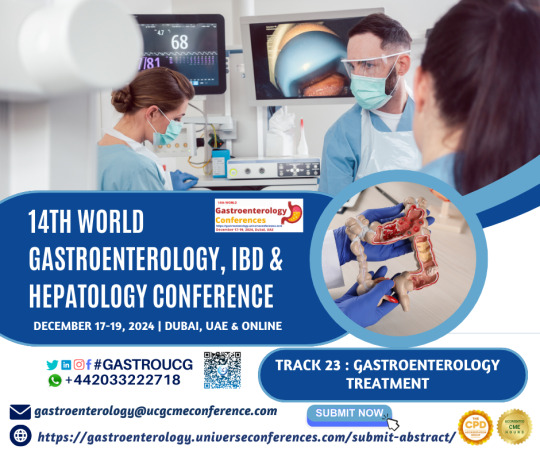
Introduction:
Introduction to Gastroenterology Treatment:
Gastroenterology, a branch of medicine dedicated to the study and management of disorders affecting the digestive system, encompasses a wide array of conditions that can significantly impact a person's health and quality of life. From the esophagus to the rectum, and including organs like the liver and pancreas, gastroenterologists specialize in diagnosing and treating a diverse range of gastrointestinal (GI) ailments.
The field of gastroenterology addresses conditions ranging from common issues like acid reflux and irritable bowel syndrome to more complex disorders such as inflammatory bowel disease and liver cirrhosis. The treatment approaches in gastroenterology are as varied as the conditions themselves, often involving a combination of medical management, lifestyle modifications, dietary changes, and in some cases, surgical intervention.
Key Components of Gastroenterology Treatment:
Diagnostic Procedures: Gastroenterologists employ various diagnostic tools and procedures to identify and understand the nature of gastrointestinal disorders. These may include endoscopy (such as upper endoscopy, colonoscopy, and sigmoidoscopy), imaging studies like CT scans and MRI, laboratory tests, and biopsies.
Medications: Pharmacotherapy plays a crucial role in managing gastrointestinal conditions. Depending on the diagnosis, patients may be prescribed medications such as proton pump inhibitors (PPIs) for acid reflux, immunosuppressants for inflammatory bowel disease, antibiotics for infections like H. pylori, and others tailored to the specific needs of the patient.
Lifestyle Modifications: Many gastrointestinal conditions respond well to lifestyle changes. Gastroenterologists often advise patients to make adjustments in their diet, exercise routine, stress management techniques, and habits like smoking and alcohol consumption to help alleviate symptoms and improve overall digestive health.
Nutritional Therapy: Nutrition plays a pivotal role in the management of gastrointestinal disorders. Patients may receive guidance on dietary modifications, including adherence to specialized diets like low-FODMAP for irritable bowel syndrome or gluten-free for celiac disease. In some cases, nutritional supplements may be recommended to address deficiencies or support healing.
Surgical Interventions: For certain gastrointestinal conditions, surgical intervention may be necessary. Procedures range from minimally invasive techniques like laparoscopy to more extensive surgeries such as bowel resection, gallbladder removal, or liver transplant, depending on the underlying pathology and the patient's clinical status.
Long-term Management and Monitoring: Gastrointestinal disorders often require ongoing management and monitoring to optimize outcomes and prevent complications. Patients may undergo regular follow-up appointments, surveillance endoscopies, imaging studies, and laboratory tests to assess treatment response and disease progression.
Gastroenterology Treatment
Gastroenterology encompasses the diagnosis and treatment of disorders related to the digestive system, including the esophagus, stomach, small intestine, large intestine (colon), liver, gallbladder, and pancreas. Treatment approaches in gastroenterology depend on the specific condition or disease being addressed. Here are some common treatments for various gastroenterological conditions:
Gastroesophageal Reflux Disease (GERD):
Lifestyle modifications: Dietary changes, weight loss, avoiding triggering foods.
Medications: Proton pump inhibitors (PPIs), H2-receptor antagonists, antacids.
Surgery: Fundoplication (to reinforce the lower esophageal sphincter).
Peptic Ulcer Disease:
Medications: Proton pump inhibitors (PPIs), antibiotics (if caused by H. pylori infection).
Avoiding NSAIDs (Nonsteroidal anti-inflammatory drugs).
Lifestyle modifications: Reducing stress, avoiding smoking and alcohol.
Inflammatory Bowel Disease (Crohn's Disease, Ulcerative Colitis):
Medications: Aminosalicylates, corticosteroids, immunomodulators, biologic agents (e.g., infliximab, adalimumab).
Nutritional therapy.
Surgery: Resection of affected bowel segments, ostomy creation.
Irritable Bowel Syndrome (IBS):
Dietary modifications: Low-FODMAP diet, fiber supplements.
Medications: Antispasmodics, antidiarrheals, antidepressants (for symptom management).
Celiac Disease:
Strict gluten-free diet.
Nutritional supplementation (to address deficiencies).
Medications (if necessary for symptom management).
Liver Disease:
Alcohol cessation (for alcoholic liver disease).
Medications: Depending on the type of liver disease, medications may include antivirals (for viral hepatitis), corticosteroids, immunosuppressants, etc.
Liver transplant (for end-stage liver disease).
Gallstones:
Cholecystectomy (surgical removal of the gallbladder).
Medications (to dissolve gallstones in some cases).
Pancreatitis:
Hospitalization (for severe cases).
NPO (nothing by mouth) status and intravenous fluids.
Pain management.
Nutritional support.
Identification and treatment of underlying causes (e.g., alcohol cessation, gallstone removal).
Colon Polyps and Colorectal Cancer:
Colonoscopy for polyp removal and screening.
Surgery for cancer treatment, often followed by chemotherapy and/or radiation therapy.
Treatment plans are tailored to individual patients and may involve a combination of lifestyle modifications, medications, procedures, and surgeries. It's essential to consult with a gastroenterologist for proper diagnosis and treatment recommendations tailored to your specific condition.
Conclusion:
In conclusion, gastroenterology treatment encompasses a comprehensive approach to managing a diverse range of disorders affecting the digestive system. From common conditions like acid reflux and irritable bowel syndrome to more complex diseases such as inflammatory bowel disease and liver cirrhosis, gastroenterologists play a pivotal role in diagnosing, treating, and supporting patients through their healthcare journey.
The treatment landscape in gastroenterology is multifaceted, incorporating diagnostic procedures, medications, lifestyle modifications, nutritional therapy, surgical interventions, and long-term management strategies. Through a combination of medical expertise, patient education, and personalized care plans, gastroenterologists strive to optimize outcomes, alleviate symptoms, and enhance the overall quality of life for individuals affected by gastrointestinal disorders.
Furthermore, ongoing research and advancements in gastroenterology continue to expand treatment options, improve diagnostic accuracy, and refine therapeutic approaches, offering hope for better outcomes and enhanced patient care in the future.
Ultimately, effective gastroenterology treatment requires collaboration between healthcare providers and patients, emphasizing the importance of open communication, shared decision-making, and proactive management of digestive health concerns. By working together, patients and gastroenterologists can navigate the complexities of gastrointestinal disorders, empower individuals to take control of their health, and foster a pathway toward improved well-being and vitality.
Important Information:
Conference Name: 14th World Gastroenterology, IBD & Hepatology Conference
Short Name: 14GHUCG2024
Dates: December 17-19, 2024
Venue: Dubai, UAE
Email: [email protected]
Visit: https://gastroenterology.universeconferences.com/
Call for Papers: https://gastroenterology.universeconferences.com/submit-abstract/
Register here: https://gastroenterology.universeconferences.com/registration/
Exhibitor/Sponsor: https://gastroenterology.universeconferences.com/exhibit-sponsor-opportunities/
Call Us: +12073070027
WhatsApp Us: +442033222718
0 notes